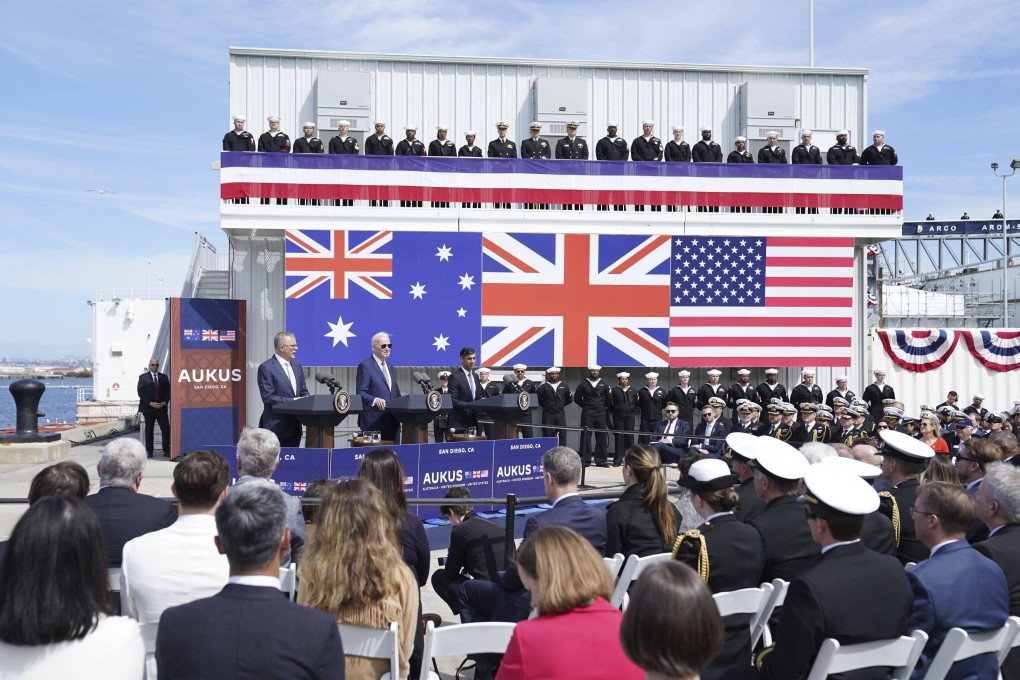Opinion | The Aukus gamble: can Australia rely on US alliance to secure its future in Asia amid rising China?
- Australia’s ruling Labor Party is still clinging to the idea of a US-led global order, despite criticism of the risks and cost of Aukus project
- But doubts are now growing about whether Aukus can boost Australian maritime capabilities, and wider implications for nuclear non-proliferation regime

Some of the most searching questions come from within Australia’s governing Labor Party, led by elder statesman Paul Keating, who has excoriated the present Labor leadership for its swift and eager embrace of the A$368 billion (US$248 billion) Aukus project.
There are two reasons for Labor’s rather surprising embrace of Aukus. One of them is pure politics. Like many centre-left parties around the world, Labor fears it will lose votes if it seems soft on national security, and has fervently backed Aukus to avoid such criticisms from its conservative opponents.
Many Labor figures are also deeply committed to Australia’s alliance with the US, and they understand that this is what Aukus is really all about.
The present generation of party leadership came of age politically in the optimistic “End of History” 1990s, when preponderant US power seemed to guarantee a long era of peace.
But now the doubts are setting in. First, there are questions about whether the programme to replace Australia’s existing Collins-class conventional submarines with nuclear-powered boats will actually work. The plan for Australia to buy up to five second-hand US Virginia-class submarines from the early 2030s might fall through for any number of reasons.
